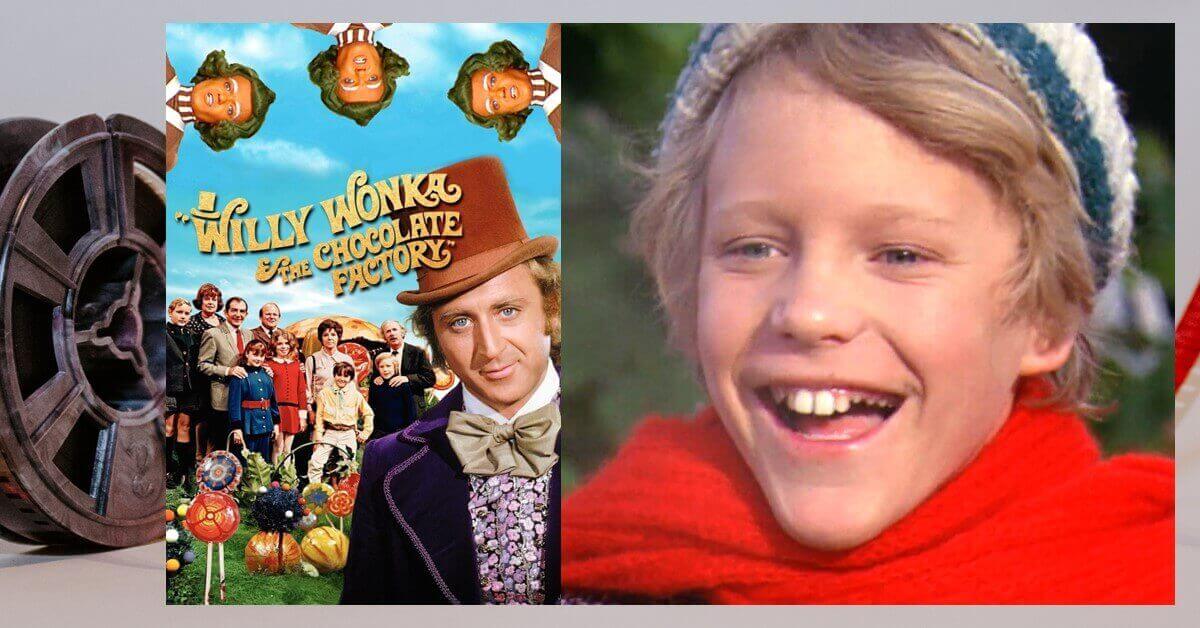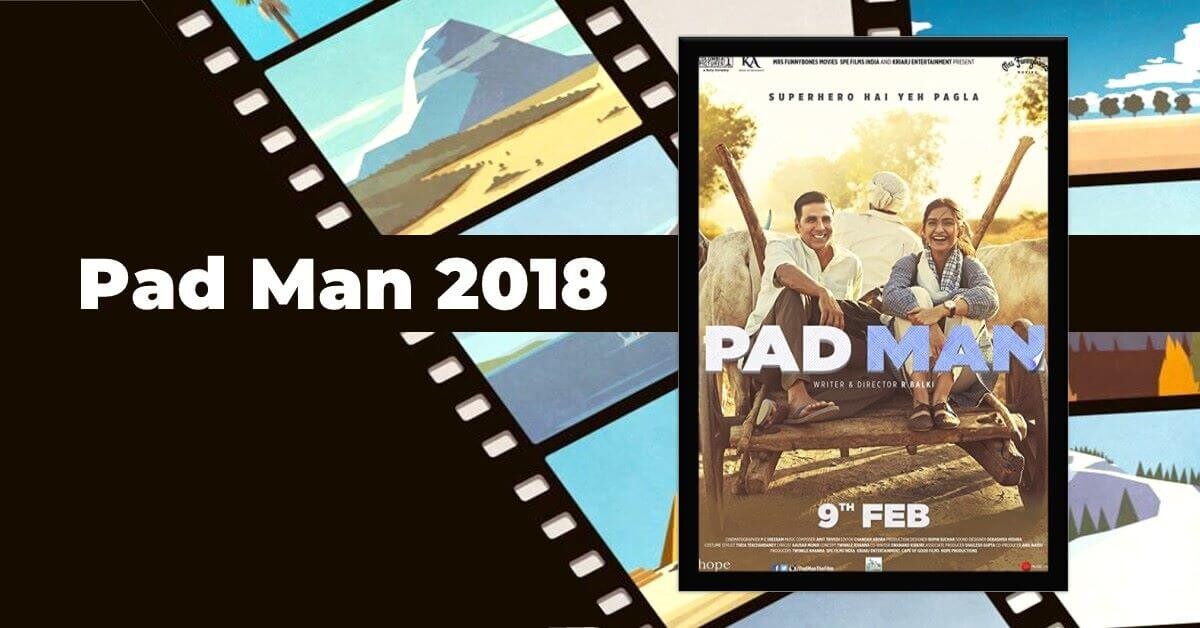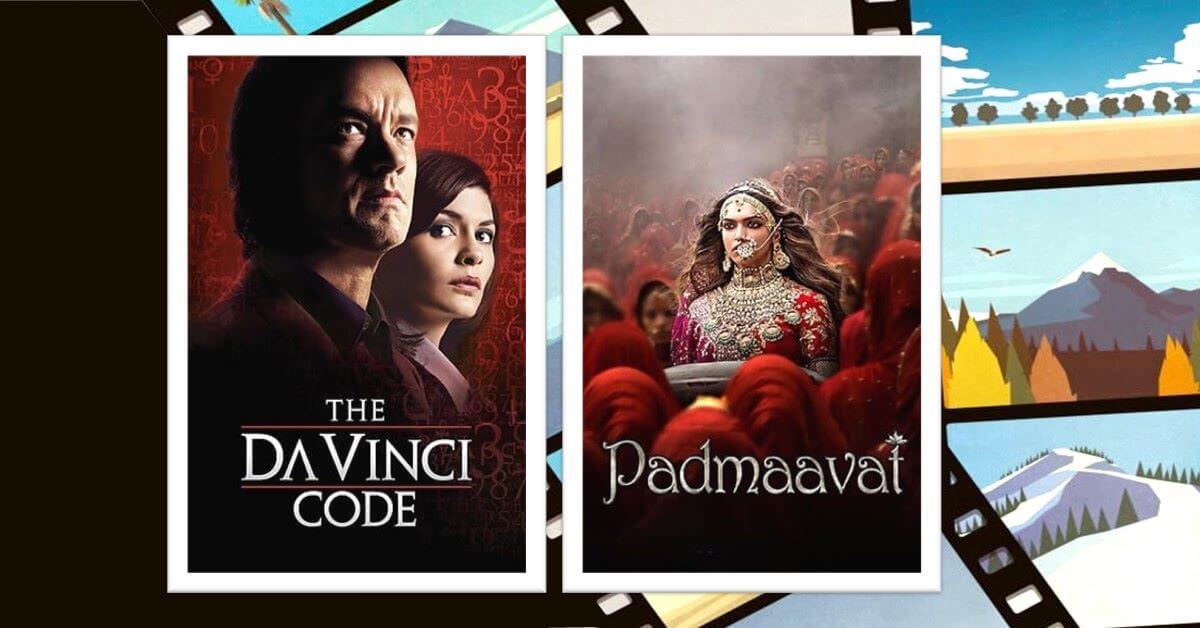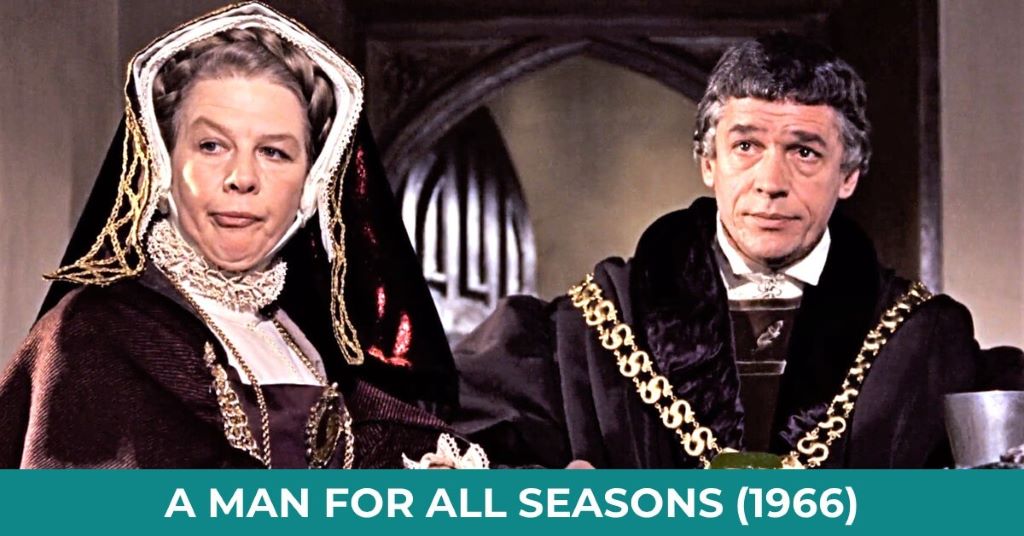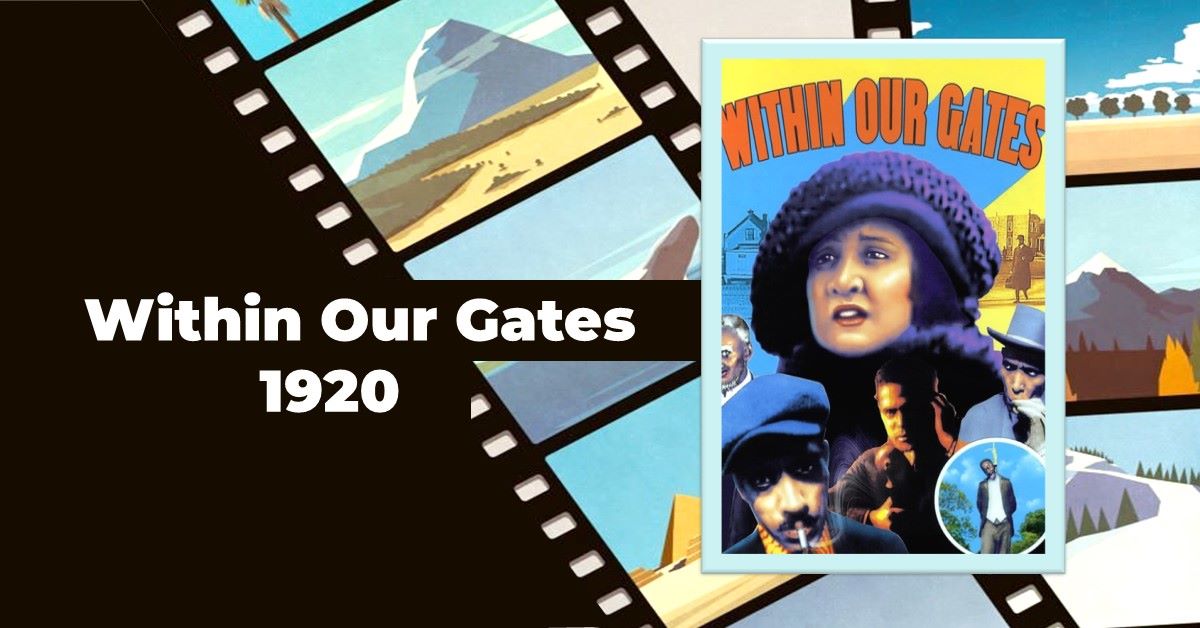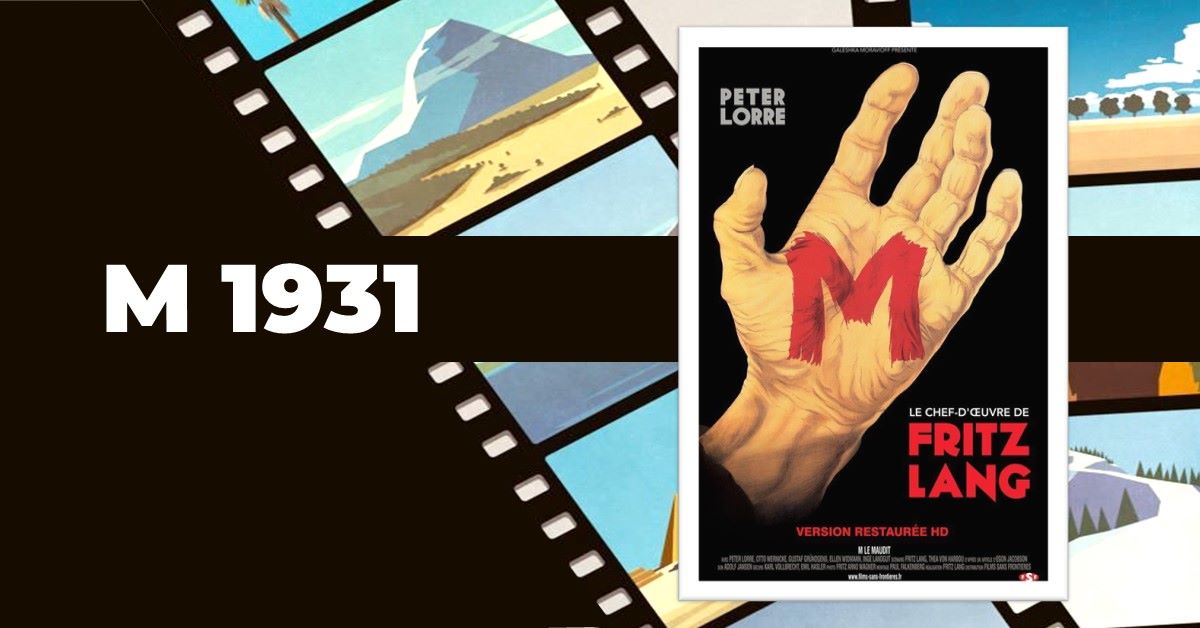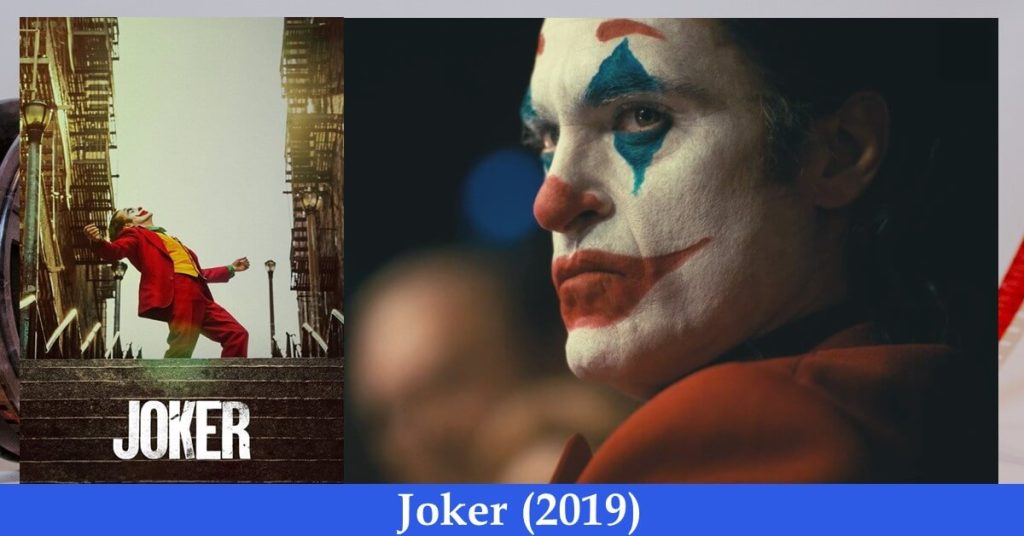Last updated on September 23rd, 2023 at 01:30 pm
Willy Wonka And The Chocolate Factory 1971 film is based on the British writer Roald Dahl’s children’s book Charlie and The Chocolate Factory which tells the story of the five lucky Golden Ticket winners to visit Willy Wonka’s largest and most famous chocolate factory in the world. The film shows the inevitable consequences that unruly, greedy, spoiled and well-mannered children face during their visit to the factory.
When the time came Mr Wonka decided to allow five children visitors to his factory. They will be allowed to see all the secret magic of chocolates. And at the end of the tour, they will be given chocolates and sweets enough to last their lives. Subsequently, after the news broke, the whole world went crazy, which the TV news called Wankomania. Billions of Wonka chocolate bars started pouring in around the world.
Acted by Gene Wilder (as Willy Wonka), Jack Albertson (as grandpa Joe), Peter Ostrum (as Charlie Bucket), Julie Dawn Cole (as Veruca Salt), Paris Themmen (as Mike Teevee) and others the musical drama film Willy Wonka & The Chocolate Factory 1971 is one of the best 101 films of 100 years.
As news broke out, fully grown women were seen going into sweet shops and buying ten Wonka bars at a time, then tearing o the wrappers on the spot and peering eagerly underneath for a glint of golden paper.
Children were taking hammers and smashing their piggy banks and running out to the shops with handfuls of money. In one city, a famous gangster robbed a bank of a thousand pounds and spent the whole lot on Wonka bars that same afternoon.
The whole world suffered from Wonka’s Scrumdiddlyumptious bar fever. But Charlie, who thinks he is different from all, who did not have money to buy not more than four bars, became the heir of Mr Wonka when the rest four greedy, spoiled and unruly kids had to end their tour before it ended because of their attitude.
By allowing visitors, Mr Wonka was actually looking for a rightful heir to his factory, which was found in poor Charlie.
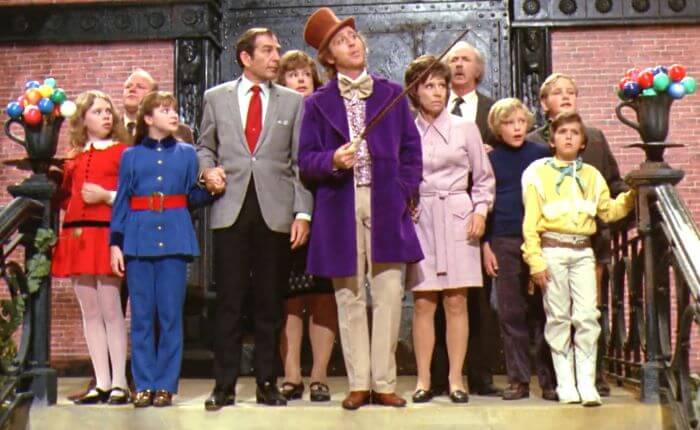
Of the five winners, a boy, Charlie Bucket, was a fatherless breadwinner for his family. He delivered newspapers to rescue his family from starvation. He saw how his four grandparents and mother were surviving simply on cabbage soup.
Sometimes they had to give up their lunch or dinner to Charlie as a growing boy. But he did not like the cabbage soup every day, he wanted something more filling and satisfying than the cabbage soup: it was chocolate.
Charlie believed that he must be one of the five lucky winners.
Storyline
The first Wonka Golden Ticket was found by a boy called Augustus Gloop, a greedy boy, in the small town of Duselheim, Germany. His mother said in a TV interview that ‘He eats so many bars of chocolate a day that it was almost impossible for him not to find one.
The same day was Charlie’s birthday. His grandparents and mother gave him a present of Wonka’s chocolate. Charlie was disappointed not to find a golden ticket inside the bar.
The lucky person to find the second Golden Ticket was a small girl called Veruca Salt, a girl who was spoiled by her parents. She lived with her rich parents in a great city far away. Her father appointed hundreds of workers in his factory to shell Wonka bars.
One of the workers found the bar after shelling 750,000 Wonka bars on the fifth day. Her mother said ‘as soon as my little girl told me that she simply had to have one of those Golden Tickets, I went out into the town and started buying up all the Wonka bars I could lay my hands on.
‘She’s the girl whose father bought up half a million chocolate bars and then made the workers in his peanut factory unwrap every one of them until they found a Golden Ticket! He gives her anything she wants! Absolutely anything! She only has to start screaming for it and she gets it!’
Charlie watched the news on TV on the third Golden Ticket. It was found by a Miss Violet Beauregarde, who chews gum all day long, from the Mile City of Montana. Her father was a prominent politician.
As he approached his mother, she said there are 100 billion people after just five tickets. Even if he has sacksful of money there is no guarantee that he will find one, and when the contest is over, he will be no different than other billion people who did not win the ticket. But Charlie protested that he is different from others. She said things will change perhaps when he least expects it.
From Marble Fall Arizona came the fourth Golden Ticket. It was found by a boy called Mike Teevee, who watches TV all the time. When there was only one ticket left for the whole world, one in the middle of the night Charlie’s grandfather, Joe, called him to his bed to surprise him with a Wonka’s Scrumdiddlyumptious bar. They both were disanointed.
The last case of the Wonka Bar War bided for five thousand pounds in the UK. Back at his school, he found that most of the students opened not less than a hundred Wonka bars while Charlie had opened only two of them.
Then one afternoon, walking back home from school his eye was caught suddenly by something silvery lying in the gutter, in the snow. Charlie stepped on the kerb and bent down to examine it. Part of it was buried under the snow, but he saw at once what, it was It was a fifty pence piece.
Hungry, he went to the nearby candy shop to buy a Wonka’s Scrumdiddlyumptious bar. when he asked for a Wonka bar, the shopkeeper gave him a Scrumdiddleumptious bar. Charlie finished the first voraciously and decided to buy another.
Charlie picked it up and tore off the wrapper… and suddenly… from underneath the wrapper… there came a brilliant flash of gold. Charlie’s heart stood still. Charlie found the fifth Golden Ticket.
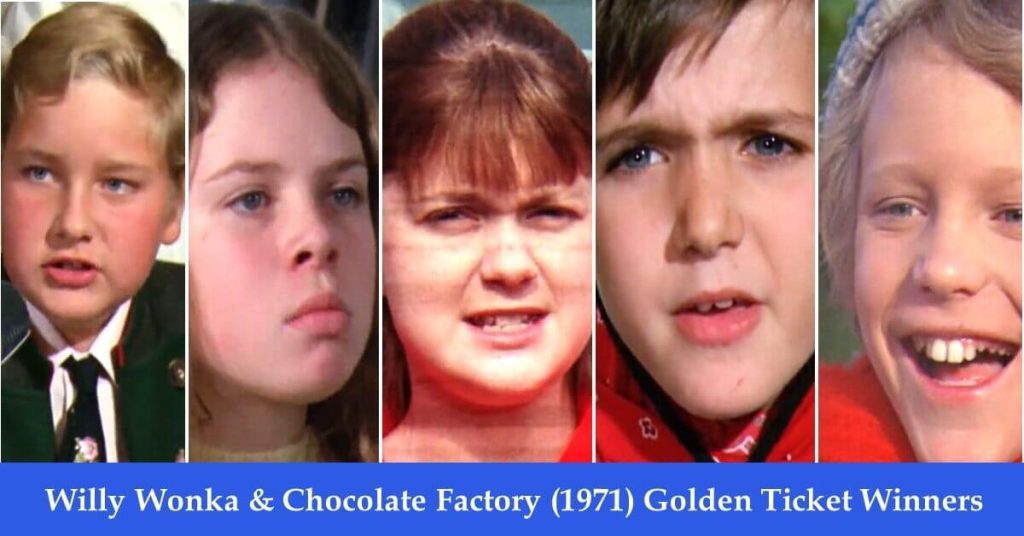
The Tour: How the Rest Ended
The ticket says the winner can take only one person him or her. (the book mentions all the children, except Charlie, had both their mothers and fathers with them). Charlie decided to take his grandfather Joe.
Mr Wank personally escorted them to the factory. After passing through a few doors, they had reached the chocolate room, a chocolate valley, in fact. There were green meadows on either side of the valley, and along the bottom of it, there was a chocolate river.
There was a tremendous waterfall halfway along the river – a steep cliff over which the water curled and rolled in a solid sheet, and then went crashing down into a boiling churning whirlpool of froth and spray.
Below the waterfall (and this was the most astonishing sight of all), a whole mass of enormous glass pipes were dangling down into the river from somewhere high up in the ceiling!
Graceful trees and bushes were growing along the riverbanks – weeping willows and alders and tall clumps of rhododendrons with their pink and red and mauve blossoms. In the meadows, there were thousands of buttercups. It is like a real paradise, a paradise of chocolate where almost everything is edible.
Mr Wonka showed them everything. Everybody bent down and picked blades of grass, and flowers except Augustus Gloop, the first winner, who took grass greedily.
While Mr Wonka was showing and talking about the Oompa Loompas, the workers of the factory, and the dwarf population, Veruca told her father to buy an Oompa Loompas for her. But in the meantime, the greedy boy Augustus had quietly sneaked down to the edge of the chocolate river. Kneeling on the riverbank, scooping hot melted chocolate into his mouth as fast as he could.
However, he fell into the river and ended up in the enormous glass pipes to his mother’s shock. Mr Wank sent his mother to the Fudge Room.
Down the Chocolate River, Mr Wonka took to The Inventing Room by a boat, where he introduced the Everlasting Gobstoppers and Hair Toffee. He warned of no touching, no messing and no telling of his secret inventions of chocolates.
“Everlasting Gobstoppers”, says Mr Wonka, “I am inventing them for children who are given very little pocket money. They can put an Everlasting Gobstopper in their mouth and can suck it and suck it and suck it and suck it and it will never get any smaller!” he promised to give each of them an Everlasting Gobstoppers if they promised not to show it to anyone else. Promise, the four of them were given an Everlasting Gobstoppers each.
The Hair Toffee was for growing a brand-new luscious thick silky beautiful crop of hair on the head, a moustache, and a beard, too! He talked about a magic gum equivalent to three-course dinner. “This gum”, Mr Wonka went on, “It’s a chewing-gum meal!
‘When I start selling this gum in the shops it will change everything! It will be the end of all kitchens and all cooking! There will be no more shopping to do! No more buying of meat and groceries! There’ll be no knives and forks at mealtimes! No plates! No washing up! No rubbish! No mess! Just a little strip of Wonka’s magic chewing gum – and that’s all you’ll ever need at breakfast, lunch, and supper!”
while he still holding the gum, Violet snatched it and started chewing. Gradually he was truing blue and purple all over! Even her hair was changing colour! Eventually, Violet had turned violet and began to swell. Huge that Mr Wonka had to be sent to the juicing room for squeezing before he burst, along with her father. Goodbye Violet.
Then Mr Wonka let the group to a room where there were Fizzy Lifting Drinks and drinks the filled with gas. It lifts anyone off the ground like a balloon.
As he led the group to the Room of the Golden Gees, (The Nut Room, full of squirrels, according to the book) Grandpa Joe and Charlie tried Fizzy Lifting Drinks. As a result, they started to float up toward the ceiling but survived the floating by burping. They returned to the group after having landed.
The gees of room Golden Gees were quadruple in size and lay octuple-size golden chocolate eggs. When she had been refused to sell a golden goose, she wanted to have a feast the very moment with cream buns, doughnuts and fruitcakes. She expected the whole world. She said if she doesn’t get what she wants she will scream.
Ransacking the room, she ran on to the Eggdicator, the measurement that differentiates the good eggs from the bad. It sends the bad eggs to the chute. She was taken down by the Eggdicator as she stepped on it. Desperate, her father followed her to Eggdicator. Goodbye Veruca.
Then he led them to the Wonkavision Television Room, the Television Chocolate room. He described the functions of Television Chocolate. “With a large cine camera take a photograph of something. The photographs are then split up into millions of tiny little pieces which are so small that can’t be seen. And these little pieces are shot out into the sky by electricity.
In the sky, they go whizzing around all over the place until suddenly they hit the antenna on the roof of somebody’s house. They then go flashing down the wire that leads right into the back of the television set, and in there they get jiggled and joggled around until at last every single one of those millions of tiny pieces is fitted back into its right place (just like a jigsaw puzzle), and presto! – the photograph appears on the screen.”
He demonstrated the process with big chocolate bare, the of a mattress. With help of the giant camera, the chocolate turned into a million pieces floating above the head. Then a million pieces fitted back into a whole small bar and appeared on the TV screen. He invited Charlie to try it.
Mike Teevee asked Mr Wonka if he can send any other things, except just chocolate. He said he probably can. Immediately Mike Teevee stepped onto the camera platform hoping to be the first person to be sent by the television in the world. He started running as fast as he could towards the other end of the room where the great camera was standing.
Mike Teevee turned into a million pieces and was transported to the TV screen, not taller than a pencil. His mother picked him up from the screen and put him inside her purse and left the factory. With that came also the end of the tour. Except for Charlie, the rest of the winners ended up dead or un-useful.
In the end, when Charlie and his Grandpa Joe come to Mr Wonka to talk about his promise of supplying chocolate for a lifetime, Mr Wonka said he can’t do that because they broke the rules of the tour by drinking Fizzi-Lifting Drinks.
When they were about to leave the door, Charlie turned back and returned the Everlasting Gobstoppers to Mr Wonka. As Charlie turned his back, Mr Wonka called him back and embraced him, saying ‘I knew it, you won it, you passed the test.”
Then he took them to an elevator (he called Wonkavator because of its multidirectional movements) that shot up above the roof of the factory. He showed the whole city and said he is going to give the factory to him because of his honesty and loving-kindness.
Mr Wonka said that’s why he invited the visitors to look for a rightful heir to his factory who could take care of the Oompa Loompa, not a grown-up man because a grown-up would do everything in his own way, not his. Now Charlie and his whole family can move over to the factory.
Conclusive Remark
Willy Wonka & The Chocolate Factory 1971 is certainly one of the best children’s movies. It tried to bring corrections and show the fault lines of children. For which, sometimes, parents can not escape the blame. Our characters are the results of the collective guidance of parents or society.
The utter lack of guidance and unrestrained psychological behaviour suppress our progress in the real world.
When Augustus drowns himself in the chocolate river, the Oompa Loompas workers conveyed through music that when you are not greedy you will go far, and live in happiness too.
When Violet disobeyed her father they sang that gum chewing is good once in a while, it stops you from smoking and brightens your smile. But it is repulsive, revolting and wrong to chew all the long.
Being a bad egg, when Veruca went into the Eggdicator to the chute, Oompa Loompas sang that when a child is pampered and spoiled it’s a shame to blame kids. Who exactly to blame: the parents.
When Mike Teevee, the boy who does nothing but watch TV, was gone, the Oompa Loompas asked what do you get from a glut of TV? Why don’t you try simply reading books? You will read you will go far.
However, even though Charlie did not get the chartered culture of upbringing like any well-off family provides to their children to be assertive, to speak for his rights and demanding, he was honest, restrained, not a glutton, greedy and disobedient, but rather full of love and compassion, genuine whom Mr Wonka was seeking to replace his position as an owner of the factory.
That brings me to assert that Willy Wonka and The Chocolate Factory 1971 was worth my time.
